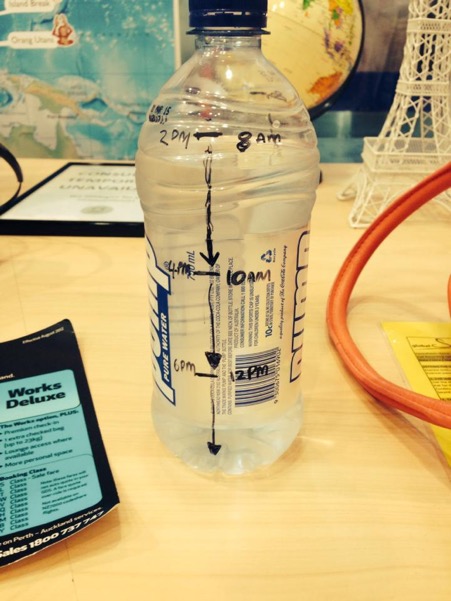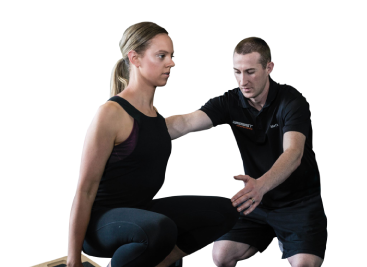 Assist Personal Trainings complete guide on
Assist Personal Trainings complete guide on
- why water is important for your health
- how it helps you drop body fat
- how to calculate just how much you need to drink
- and some tips on how to increase your daily intake!
Science is telling you, your Mother tells you, the health professional in your life is forever on your back telling you to “DRINK MORE WATER”!
Other than oxygen, why is water the most vital nutrient for every single human being on the planet? Drinking enough of the stuff becomes our new norm when we understand and value what water does for us, so let’s do this!
Water is vital in maintaining and regulating the body’s systems Water is an essential vital nutrient for all cell life. Water is responsive, flexible, accommodating, effective and powerful.
Your muscles that move your body are approximately 75% water; your blood that transport nutrients is approximately 83% water; your lungs that provide your oxygen are approximately 80% water; your brain that is the control centre of your body is approximately 75% water; even your bones contain about 22% water.
Our health is truly dependent on the quality and quantity of the water we drink.
Water carries nutrients and oxygen into all cells. It is responsible for about 90% of all chemical reactions within the body. It doesn’t just hydrate the body, it’s the medium for almost all chemical reactions.
Not only is it the medium in which chemical reactions take place in but it’s also involved as the catalyst for the reaction. That’s why when we don’t drink enough water we don’t feel good. Metabolism is slowing down and nothing is functioning correctly because there’s not enough water to maintain the chemical reactions for optimal wellbeing.
It lubricates the joints and organs, maintains muscle tone, keeps skin soft, regulates body temperature, regulates PH, blood pressure, filters out impurities and flushes out wastes, impacts our energy levels and workout performance and keeps our minds alert.
These are just a few of the many reasons why water intake is so vital to your health and why only a couple of glasses a day is no where near enough. Water is the best fat burner you can possibly get your hands on!! Water aids in weight loss so not getting in enough water can be one of the reasons why you are not breaking down body fat.
By the time your mouth tells you you’re thirsty, you are ready dehydrated. When you’re dehydrated, your ability to burn body fat drops by 30%!
Lymphatic system circulates fat around the body out of the intestinal tract. Toxins are stored in fat. When you’re burning fat, you’re also releasing a lot of toxins. Like our blood stream, the lymphatic system keeps turning things around in an effort to keep the body clean. The body needs water to detox these toxins from the the lymphatic system.
Starting your day with a big glass of water in the morning will kickstart the process the body needs to get rid of toxins. If these toxins build up, the immune system can be compromised and this may result in sickness. When we don’t drink enough water, toxins are stored in fat cells so they aren’t floating around and making us sick, when we burn fat, these toxins are released again, hence the importance of why hydration is so important especially when were on a fat loss journey.
Did you also know the same part of the brain that tells you you’re thirsty is also responsible for interpreting hunger? It is very common for us to misread those signals and confuse dehydration messages as hunger. Put it to the test and see for yourself. Next time you’re hungry, drink a glass of water and wait 15 minutes to see if you were actually thirsty.
Feeling unsatisfied and needing to snack after dinner is a very common habit for many. If it’s one of yours, cast your mind back to when the last glass of water you consumed was to determine if more protein or fats are needed in your meal or if you are due for more water.
It’s also important to think of food as “energy”, consuming small meals every 2-3 hours will help keep you energised and not reaching for calorie loaded snacks. Remember, your metabolism slows down at night. You may find rehydration is what you’re after, not extra energy.
Waters speeds up muscle recovery and gains As already mentioned, muscle are 75% water. When muscle cells are dehydrated by only 1 or 2%, a catabolic process is triggered. A catabolic environment makes nutrient transport into cells difficult and this impairs recovery and gains from training…..BUT when fluid intake is increased, particularly in the presence of cell-volumizing nutrients such as micronized glutamine and creatine, muscle cell volume increases.
Increasing cell volume switches on the anabolic process (the synthesis of new tissue within cells) and the synthesis of new tissue causes an increase in metabolic rate….So what are you waiting for, drink up and reap the rewards of extra lean mass! Water increases performance A recent study by researchers from Chicago State University revealed that dehydration (3% of body weight) increased the perception of fatigue by a whopping 70%.
Also, power output decreased by up to 19%. That means, if you exercise when you’re dehydrated, not only will your performance be lousy, you’ll feel lousy also and whatever you’re performing will probably feel 10 times harder.
Water and your digestion! It’s true that the entire digestive system works more efficiently when it’s well hydrated, but this doesn’t mean it should be flooded with cold water just as it’s working to digest your meal.
Too much water during meals can interfere with natural levels of hydrochloric acid and bile needed in the stomach to properly digest your food. In particular, too much cold water during meals can slow digestion and may cause cramping in sensitive individuals. When drinking closer to meal times, aim for warm water over cold.
It’s more friendly on the digestive process but try not to drink to much with meals and aim to make the last full glass 15-30 minutes before your next meal, leaving the bulk of your water intake for between meals.
Dehydration…Who’s at risk and what to look for? The truth is, every morning you wake up, your body is already in a dehydrated state. Upon waking, start your day off with a full glass of water and see the benefits this one simple step will provide you with! Dehydration means your body does not have as much water and fluids as it should. Dehydration can be caused by losing too much fluid due to a hot or warm day, not drinking enough water or strenuous exercising without enough fluids in the body.
Under normal conditions, we all lose body water daily through sweat, tears and bowel movements. Essential body salts such as sodium, potassium, calcium bicarbonate and phosphate are also lost when someone suffers with dehydration. The signs are both mental and physical.
The symptoms of dehydration include light-headedness, dizziness, nausea, headaches, fatigue, dry eyes, dry mouth, dry skin, constipation and dark yellow urine.
A water deficit of only one litre slows blood circulation and reduces concentration. When we’re dehydrated, water is taken mostly from inside our cells. Some water is taken from outside the body cells, and studies by Vanderbilt University found 8% is taken from blood volume. This causes the body to close some capillaries, making blood thicker and harder to pump around the body, which leads to implications in hypertension, high cholesterol, and heart disease.
The American Council on Exercise suggests drinking and extra 475ml to 600ml of water to prevent dehydration and significantly improve strength and performance. Add a tiny pinch of good quality salt (like Murray River Salt, or for those of you outside of Australia, Celtic or Himalayan Salt) to your water. This is a good clean salt which returns minerals to our bodies and helps our kidneys use water as hydration.
Remember, the sensation of thirst is the last indication your body is dehydrated. By the time you feel thirsty, it’s often too late. So how much water should you be drinking? If you weigh 70kg and just done 30 minutes of intense cardio exercise, then 3.3 litres of water is what you should be hydrating the body with. Here is a guide to calculate your own daily requirement.
|
Formula To Calculate How Much Water You Need 1.5 litres per 50kg of body weight per day plus an extra 1 litre per hour of intense activity! Work yours out now by dividing your weight in kg by 50 then multiplying that number by 1.5, leaving you with the number of litres of water you should be consuming on a low activity day. |
|
|
www.assistpt.com |
At Assist Personal Training, we pride ourselves on making sure every training session brings you one step closer to your body transformation goal, so for optimum performance, always arrive at your session fully hydrated with a bottle in hand ready to replace the fluids as they are lost.
Rehydration between bouts of exercise is key to avoiding symptoms of dehydration.
APPLYING THIS IN YOUR LIFE: Many of us struggle to keep up with our daily dosage of water.
You might want to start by applying one of these plans and putting some alerts into your calendar to help you get started.
PLAN 1
- 250ml upon waking
- 500ml bottle on the way to work
- 500ml between breakfast and lunch
- 500ml between lunch and afternoon tea
- 500ml bottle on the way home from work
- 250ml before or after dinner
That’s a total of 2.5ltrs over the course of a day! OR PLAN 2
- Fill a 1 ltr bottle you can begin drinking from as soon as you wake up.





